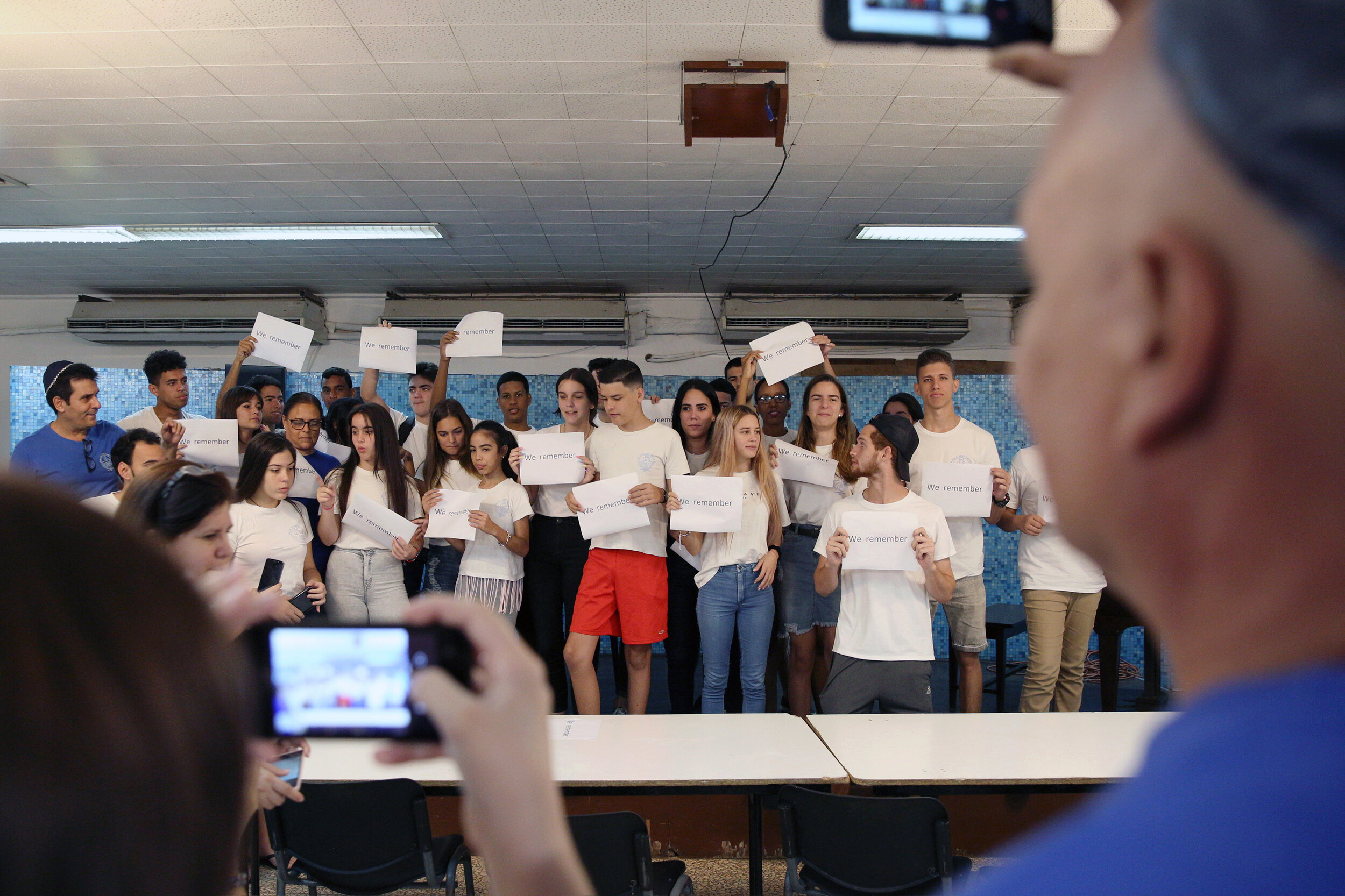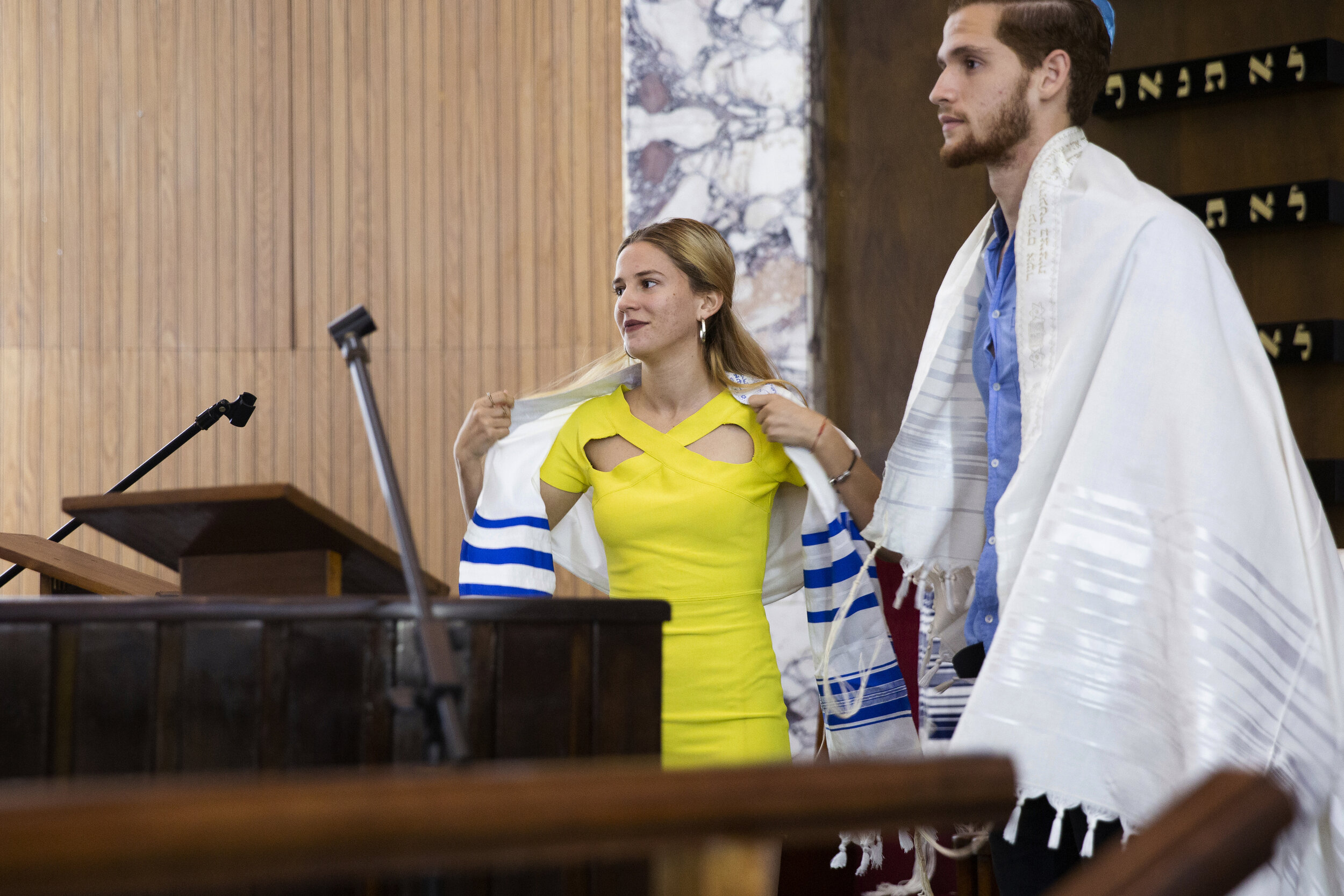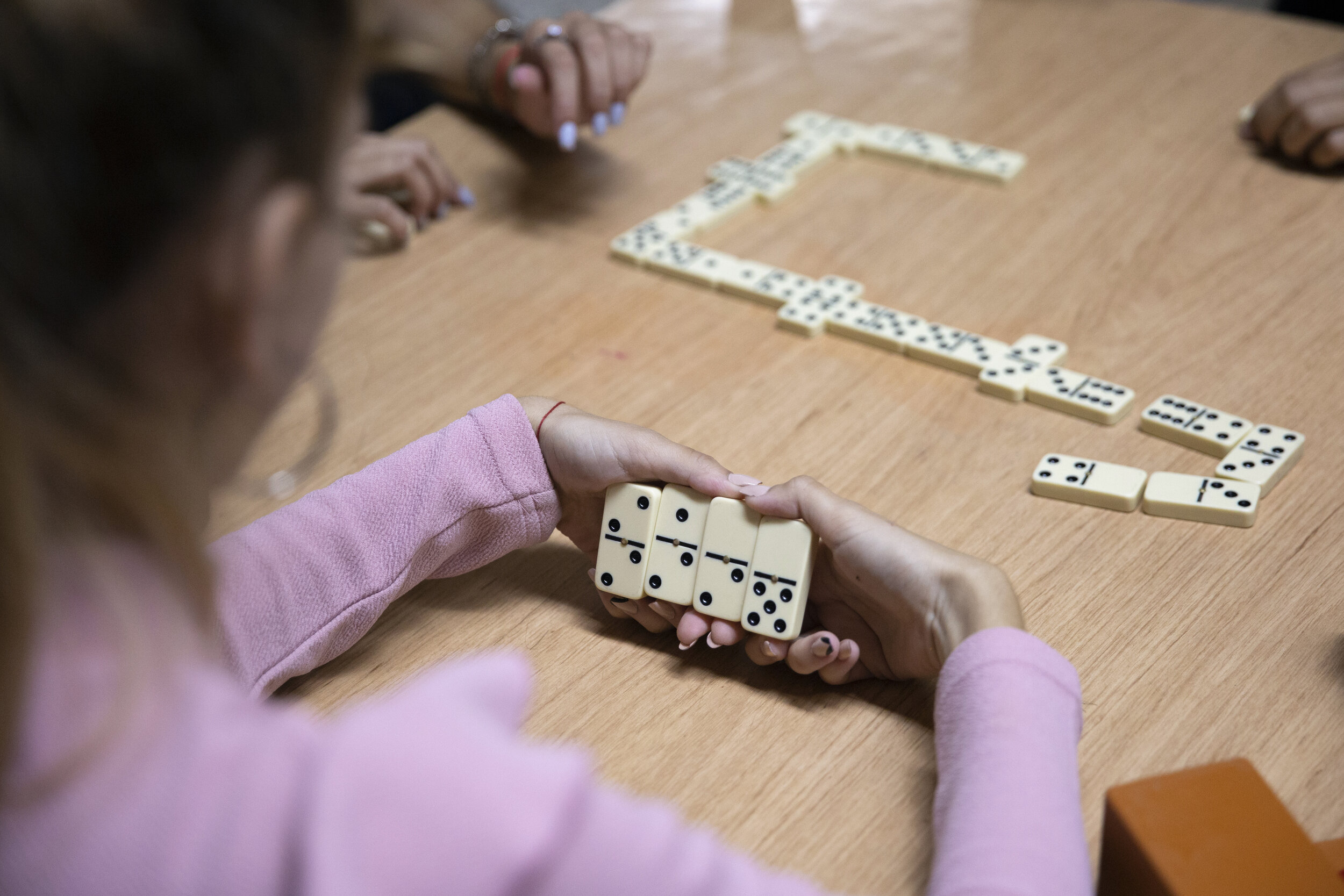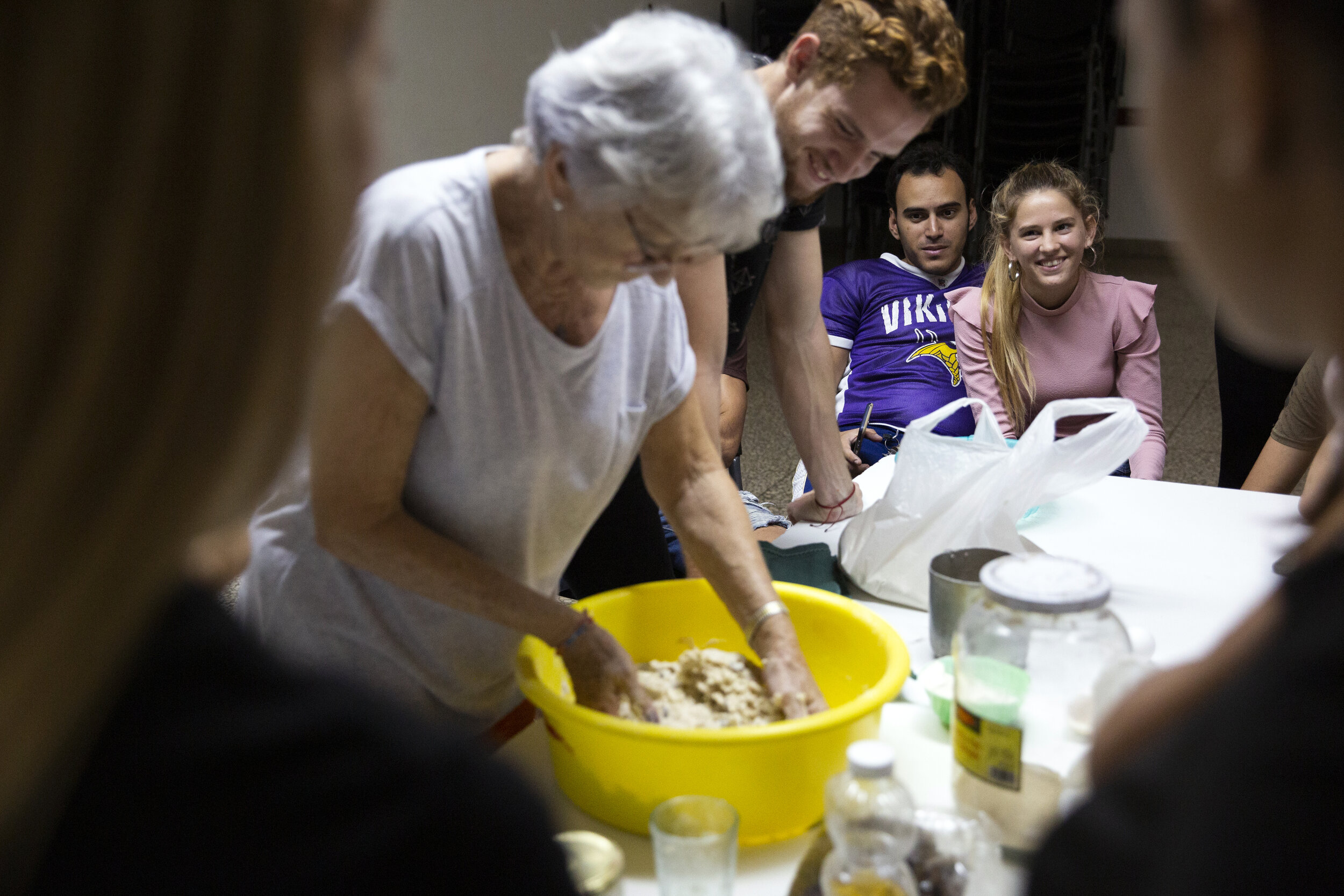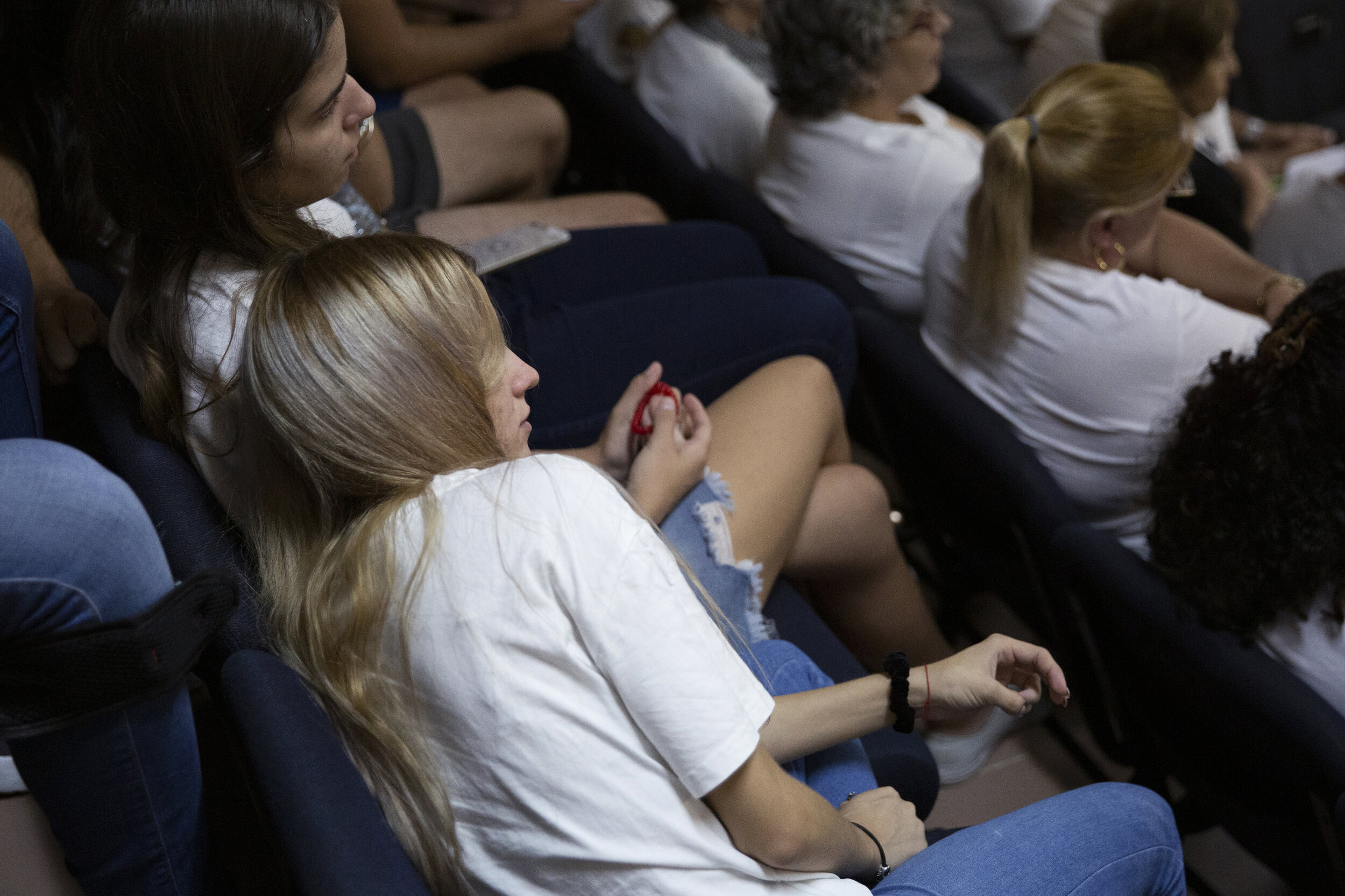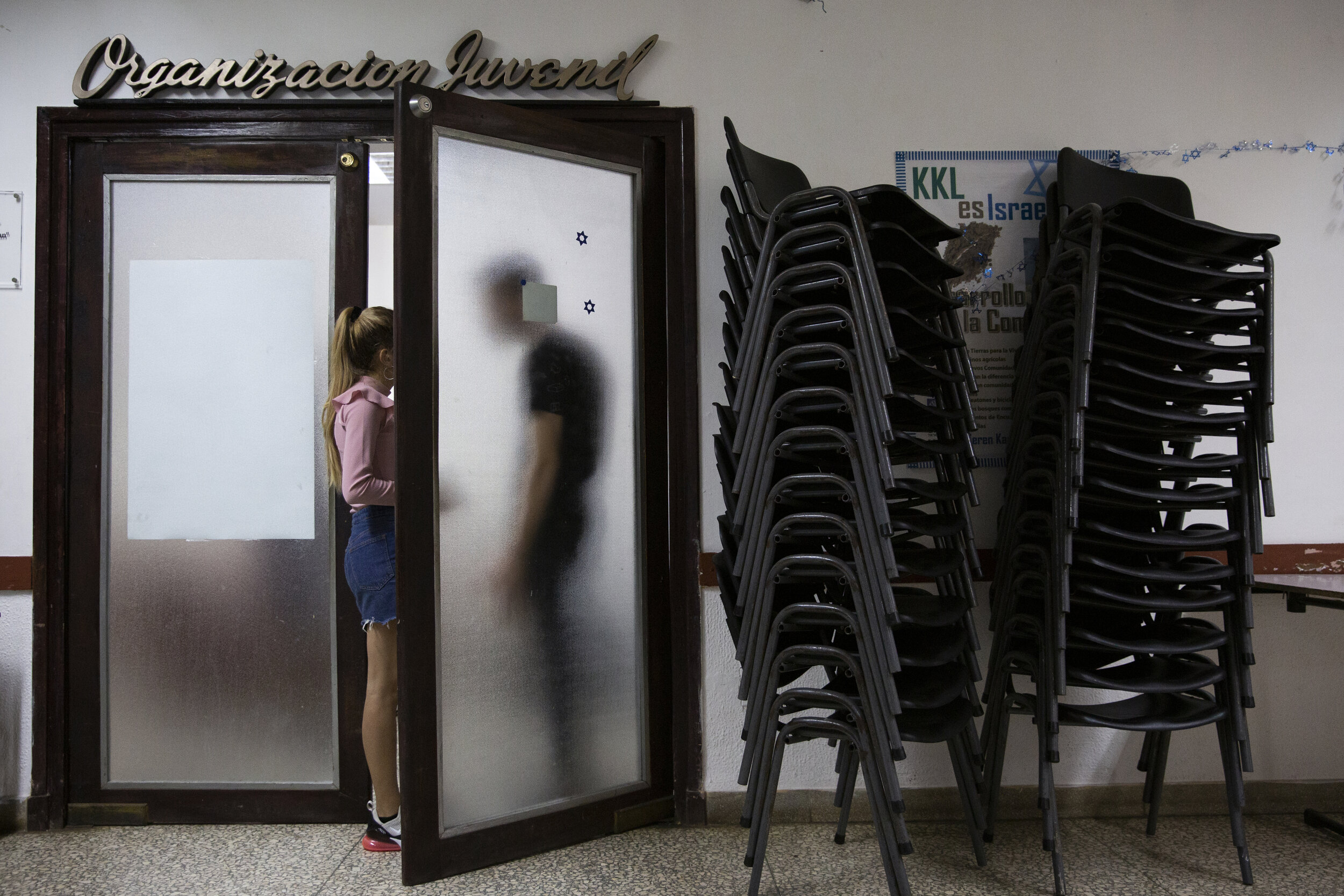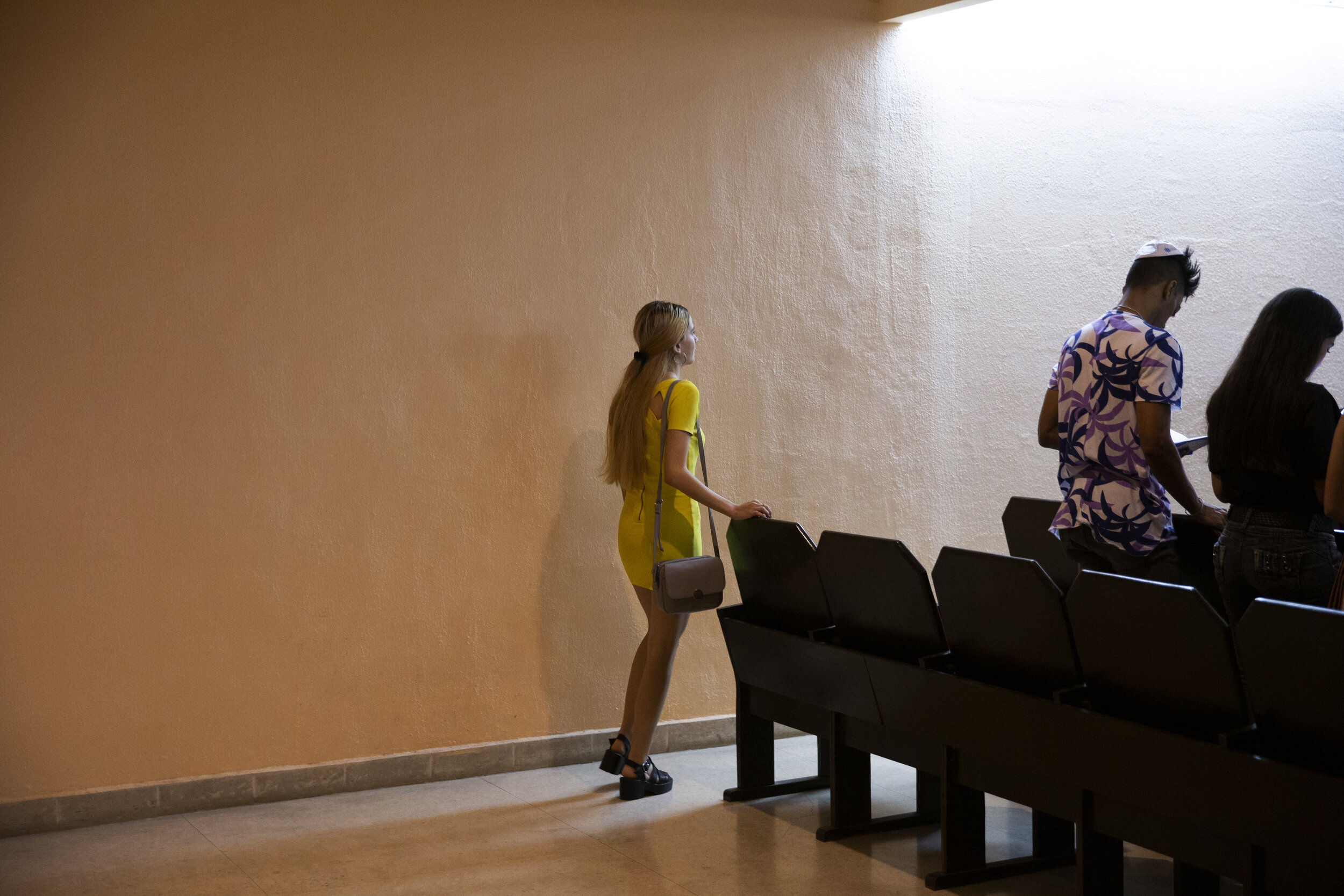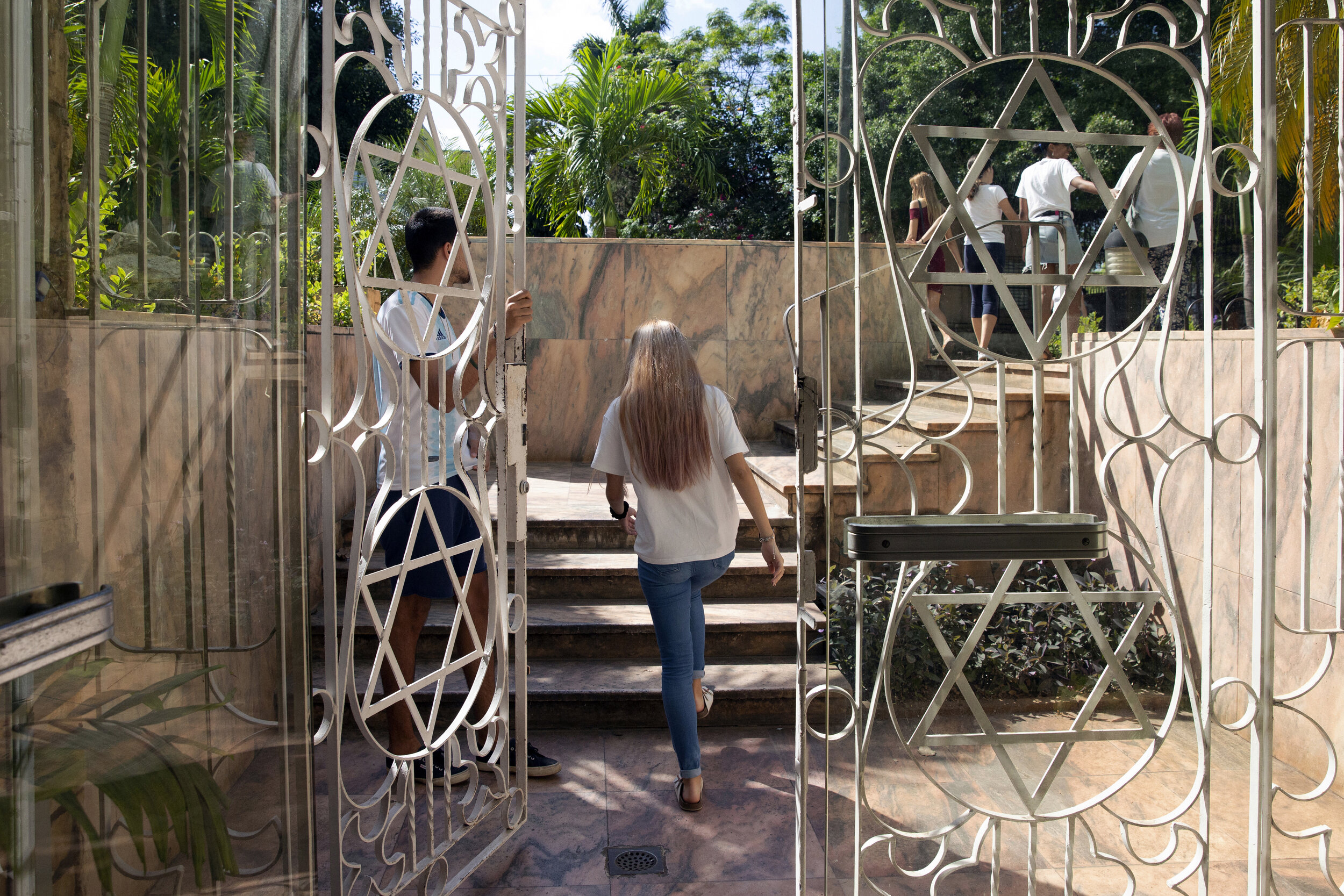Beth Shalom Temple was built in Havana, Cuba’s Vedado neighborhood in 1952. It's one of three synagogues in Havana, and only five in all of Cuba. On a Friday night in January 2020, only 70 of the synagogue’s 270 seats were filled — at least a quarter of them by tourists. Adriana Quiñones (center), 19, led the evening services, chanting at the bema in Hebrew beside her ex-boyfriend, Jonathan. While Quiñones can read Hebrew beautifully, she doesn't actually understand what it means — a qualification that has been overlooked because the synagogue does not have a rabbi. There isn't one rabbi living in the whole country of Cuba, in fact. Currently, only about 1,200 Jewish people still call the island home, down from 15,000 prior to Fidel Castro's revolutionary rise to power in 1959.
Jewish people are a minority around the world — a tiny fraction of 1% — but particularly so among Cuba's 11 million people. Their small numbers have made Cuba's Jewish community extremely close-knit. And, like in other Jewish communities around the world, the onus for continuing the practice of the religion rests on the young. When Quiñones was in her second year of pharmacy school at the University of Havana, she would travel an hour from her university to Beth Shalom each week — spending three nights at the synagogue for services, Sunday school, youth group, and recreational activities.
The lack of tourists during the pandemic is hitting the Jewish community hard, as they rely heavily on tourism for service attendance, monetary donations, and simply a reminder that they are not alone. "Really," Quiñones says, "We need a miracle."
Beth Shalom is a Hebrew phrase that translates to “in peace.” The title of this project, Oseh Shalom, means “praying for peace.” This work was published by NPR in May 2021.

